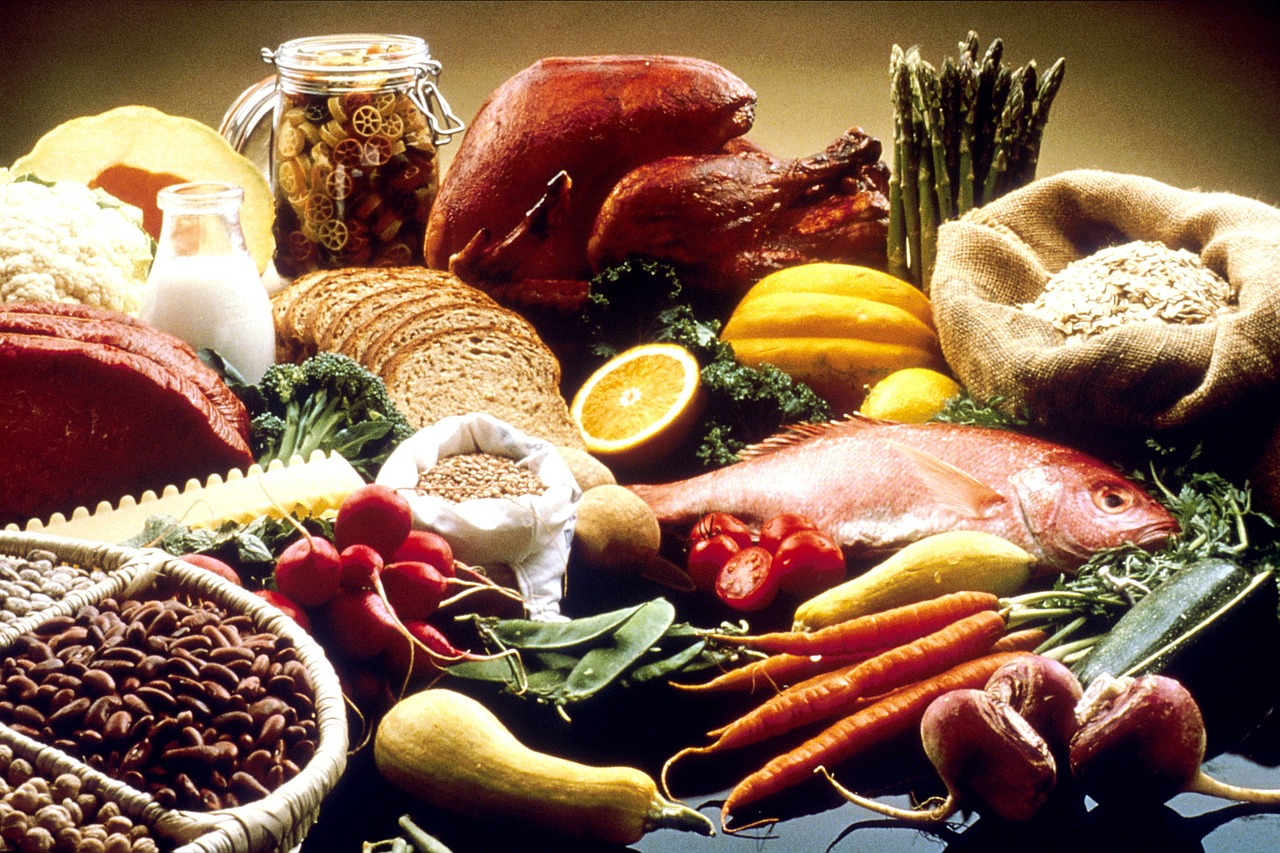Welcome to our blog! We understand that weight loss can be a challenging journey, and we’re here to support you every step of the way. In today’s post, we want to talk about a powerful tool that can help you achieve your weight loss goals: clean eating. We know that navigating through the world of diets and nutrition can be overwhelming, but we believe that clean eating is a sustainable and effective approach. Our aim is to guide you through the principles of clean eating, provide you with practical tips, and empower you to make healthier choices for long-term weight loss success. So, let’s dive in and discover the incredible benefits of clean eating!
What is Clean Eating?
Clean eating is a dietary approach that focuses on consuming whole, unprocessed foods while avoiding processed and refined ingredients. It promotes a return to a more natural and nutrient-rich way of eating. By choosing foods that are as close to their natural state as possible, clean eating aims to maximize the nutritional content of meals and minimize the intake of additives, preservatives, and artificial ingredients. In this blog section, we will explore the benefits of clean eating, specifically in relation to weight loss.
Benefits of Clean Eating for Weight Loss
Clean eating has gained popularity not only for its potential health benefits but also for its effectiveness in managing weight. Here are some key benefits of clean eating for weight loss:
1. Nutrient Density
Clean eating prioritizes whole foods, such as fruits, vegetables, lean proteins, whole grains, and healthy fats. These foods are rich in essential nutrients, including vitamins, minerals, and fiber. By focusing on nutrient-dense foods, you can achieve satiety while consuming fewer calories, which is essential for weight loss.
2. Reduced Caloric Intake
Processed and refined foods are often packed with added sugars, unhealthy fats, and empty calories. Clean eating encourages the elimination or significant reduction of these foods from your diet. By cutting out processed foods and sugary beverages, you can significantly reduce your overall calorie intake, making it easier to create a calorie deficit necessary for weight loss.
3. Improved Digestion
Clean eating emphasizes the consumption of whole foods that are rich in fiber. Fiber promotes healthy digestion, prevents constipation, and helps you feel fuller for longer. By including plenty of fiber-rich foods in your diet, such as fruits, vegetables, and whole grains, you can support a healthy gut and efficient digestion, aiding in weight loss.
4. Balanced Blood Sugar Levels
Refined carbohydrates, sugary snacks, and processed foods can cause spikes in blood sugar levels, leading to cravings and energy crashes. Clean eating encourages the consumption of complex carbohydrates, which are slowly digested and provide a steady release of energy. By stabilizing blood sugar levels, you can reduce cravings and maintain steady energy levels throughout the day, supporting your weight loss efforts.
5. Increased Awareness of Food Choices
Clean eating promotes mindfulness and a greater awareness of the foods we consume. By focusing on whole, unprocessed foods, you become more conscious of the ingredients in your meals. This awareness can lead to better food choices and a decreased reliance on processed convenience foods, which are often high in calories and low in nutritional value.
6. Improved Overall Health
Clean eating is not just about weight loss; it also offers numerous health benefits. By consuming a diet rich in whole foods, you can reduce the risk of chronic diseases such as heart disease, diabetes, and certain types of cancer. Improved overall health enhances your well-being and supports sustainable weight loss.
Principles of Clean Eating
Clean eating is a term that has gained popularity in recent years as more and more people are becoming conscious of their health and the quality of the food they consume. It refers to the practice of choosing whole, unprocessed foods and making informed choices about what we put into our bodies. By adopting the principles of clean eating, we can improve our overall well-being, increase energy levels, and reduce the risk of chronic diseases. In this blog post, we will discuss the key principles of clean eating and explore why they are important for our health.
Choose Organic and Locally Sourced Foods
One of the fundamental principles of clean eating is to prioritize organic and locally sourced foods. Organic foods are grown without the use of synthetic pesticides, fertilizers, or genetically modified organisms (GMOs). Locally sourced foods, on the other hand, are often fresher and have a smaller carbon footprint since they don’t need to be transported over long distances. Here are some benefits of choosing organic and locally sourced foods:
- Organic foods are free from harmful chemicals: By choosing organic, we can reduce our exposure to pesticides, which have been linked to various health issues such as cancer, hormonal disruption, and neurodevelopmental problems.
- Locally sourced foods are fresher: Locally sourced foods spend less time in transit, which means they are often picked at peak ripeness and retain more nutrients compared to those that have traveled long distances.
- Supporting local farmers: By buying locally sourced foods, we support small-scale farmers and help strengthen local economies.
Read Food Labels
Reading food labels is crucial when it comes to clean eating. Food labels provide valuable information about the ingredients, nutritional content, and potential allergens in a product. Here are a few things to look out for when reading food labels:
- Ingredient list: Check the ingredient list and be wary of products with long lists of unrecognizable or artificial ingredients. Clean eating emphasizes the consumption of foods with minimal, natural ingredients.
- Added sugars: Be mindful of hidden sugars, as they can be found in various forms such as high fructose corn syrup, molasses, or dextrose. Limiting added sugars is essential for maintaining stable blood sugar levels and reducing the risk of obesity and chronic diseases.
- Artificial additives: Avoid products that contain artificial flavors, colors, or preservatives. These additives have been associated with various health concerns, including allergic reactions, hyperactivity in children, and even cancer.
Avoid Added Sugars and Artificial Ingredients
Clean eating encourages the avoidance of added sugars and artificial ingredients. Added sugars provide empty calories and contribute to weight gain and an increased risk of chronic diseases such as diabetes and heart disease. Artificial ingredients, on the other hand, can have adverse effects on our health and well-being. Here are some tips to avoid added sugars and artificial ingredients:
- Choose whole foods: Opt for whole fruits instead of processed fruit juices, which often contain added sugars. Similarly, choose whole grains over refined grains and opt for homemade meals instead of processed convenience foods.
- Be mindful of sweeteners: Be aware of foods and beverages that contain artificial sweeteners or sugar substitutes. While they may offer fewer calories, some studies suggest that they can still affect our metabolism and appetite regulation.
- Prepare meals from scratch: By cooking meals from scratch, we have control over the ingredients we use, allowing us to avoid unnecessary additives and added sugars.
Summary
Clean eating is not about following strict rules or adhering to a specific diet. Rather, it is a lifestyle choice that focuses on consuming whole, unprocessed foods and making informed choices about what we eat. By choosing organic and locally sourced foods, reading food labels, and avoiding added sugars and artificial ingredients, we can improve our overall health and well-being. Remember, clean eating is a journey, and small changes in our eating habits can lead to significant long-term benefits.
Clean Eating Meal Planning
Clean eating is a nutrition-focused lifestyle that emphasizes consuming whole, unprocessed foods. By incorporating a variety of fruits, vegetables, lean proteins, and whole grains into your meal plan, you can reap the numerous health benefits and maintain a balanced diet. In this article, we will provide you with tips on how to plan and prepare clean meals effectively, along with strategies such as meal prepping and batch cooking to help you stay on track.
Planning Clean Meals
When it comes to clean eating, planning your meals in advance is crucial. By having a well-thought-out meal plan, you can avoid impulse eating and make healthier choices. Here are some tips to help you plan your clean meals effectively:
- Set Goals: Define your objectives, whether it’s weight loss, improved energy levels, or overall well-being. This will guide your meal planning process.
- Create a Grocery List: Take inventory of your pantry and fridge, and identify the ingredients you need to create your desired meals. Make a comprehensive grocery list to ensure you have everything you need for the week.
- Choose a Variety of Foods: Aim for a diverse range of fruits, vegetables, lean proteins, and whole grains. This will provide you with essential nutrients and prevent monotony in your meals.
- Consider Seasonal Produce: Opting for seasonal fruits and vegetables not only ensures freshness but can also save you money. Check local farmer’s markets or grocery store flyers for seasonal produce options.
Preparing Clean Meals
Once you have your meal plan in place, it’s time to prepare your clean meals. By incorporating meal prepping and batch cooking into your routine, you can save time and ensure that healthy options are readily available. Here are some strategies to help you stay on track:
- Meal Prepping: Dedicate a specific day to prepare your meals for the week. This can involve chopping vegetables, marinating proteins, and pre-cooking grains. Divide your prepared ingredients into individual portions or containers for easy access throughout the week.
- Batch Cooking: Prepare large quantities of meals that can be stored and reheated throughout the week. This is especially useful for soups, stews, and casseroles. Batch cooking allows you to have a healthy meal on hand when you’re short on time.
- Portion Control: Use portion control as a tool to maintain a balanced diet. Measure servings of carbohydrates, proteins, and fats to ensure you’re consuming appropriate quantities. This is especially helpful if you’re working towards weight loss or maintaining a specific calorie intake.
- Storage and Freezing: Invest in quality reusable containers to store your prepared meals. Label them with the date to ensure freshness and prioritize consuming older meals first. Additionally, freezing meals in individual portions can extend their shelf life and provide more variety in your meal selection.
Benefits of Clean Eating Meal Planning
Planning and preparing clean meals offer numerous benefits beyond the obvious health advantages. Here are some key points to consider:
- Saves Time: By dedicating a specific day to meal prepping and batch cooking, you can save time during busy weekdays.
- Saves Money: Planning your meals in advance reduces food waste and prevents unnecessary spending on unhealthy takeout options.
- Promotes Portion Control: By pre-portioning your meals, you can easily control your calorie intake and maintain a balanced diet.
- Reduces Stress: Having healthy meals readily available eliminates the stress of deciding what to eat, especially during hectic days.
- Encourages Dietary Variety: Planning your meals allows you to incorporate a variety of nutritious foods, ensuring you meet your daily nutrient requirements.
In conclusion, clean eating meal planning is an effective strategy to maintain a healthy lifestyle. By following these tips, incorporating a variety of clean foods, and utilizing meal prepping and batch cooking, you can stay on track with your nutrition goals and enjoy the numerous benefits it offers. Start planning today and experience the positive changes it can bring to your overall well-being.
The Importance of Clean Eating for Achieving and Maintaining Weight Loss
In conclusion, clean eating is an essential component of successful weight loss. Throughout this blog post, we have highlighted the benefits and principles of clean eating, emphasizing the importance of consuming whole, unprocessed foods. By eliminating processed foods and reducing the intake of added sugars and unhealthy fats, individuals can achieve their weight loss goals more effectively.
We recommend incorporating clean eating principles gradually, allowing for a smoother transition and long-term sustainability. It is important to adapt these principles to individual preferences and needs, ensuring a personalized approach to clean eating. By making conscious choices and being mindful of the quality of our food, we can nourish our bodies and support our weight loss journey.
Remember, clean eating is not about depriving ourselves or following strict rules. It is about embracing a healthier lifestyle and making informed choices about the foods we consume. By doing so, we can not only achieve weight loss but also improve our overall well-being.
So let’s embark on this journey together, making small changes each day, and nourishing our bodies with clean, wholesome foods. By prioritizing clean eating, we can achieve our weight loss goals and enjoy a healthier, happier life.

